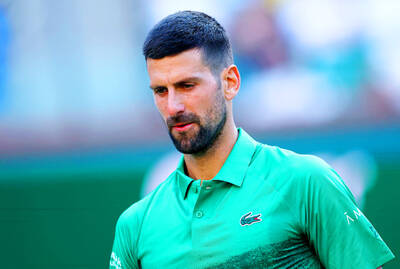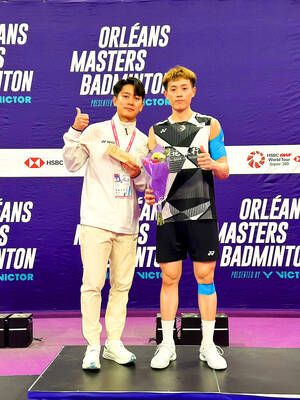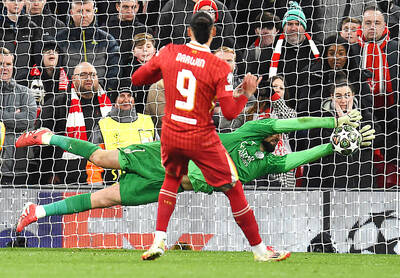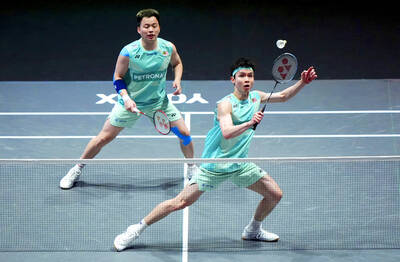Inside one of a cluster of traditional mud and grass thatched huts in Kenya’s coastal region, two elderly men sit in front of a fire with their legs crossed on a mat, hard at work.
One of the men, in his sixties, scribbles some words in Arabic on a wooden board covered with white sand.
“Yarabi,” he shouts loudly, as a group of young men at one end of the room watch attentively.
The young men are devout local supporters of English soccer club Arsenal. They want Mzee Shaha Viwahi, a reputed witch doctor, to foresee the future of their favorite club, who have gone four seasons without a trophy.
Arsenal have trailed behind arch-rivals Manchester United, Chelsea and Liverpool in the battle for the English title.
The scenes at Mzee Shaha’s place are part of daily life in the local soccer fraternity in the Kenyan coastal region — an area where “sorcery” is widespread, with some saying it’s nothing other than the use of traditional medicine, while others blame it for mysterious deaths or accidents.
However, the over-reliance on witch doctors by teams hoping to win matches or to settle scores with opposing teams has reduced once-vibrant sport to occultism.
“Coast people are very superstitious. Football cannot go on without witchcraft,” referee Patrick Renson said. “Officials consult the witch doctors to help them ‘win’ matches and uphold their positions using the club funds. Even players themselves go to the witch doctors for the charm against each other.”
The practice is not confined to Kenya.
Mzee Shaha and his partner Mzee Shariff Omar, both born in the Zanzibari island of Tumbatu, have been at the forefront of a booming business now spreading across east and central Africa.
Two of their countrymen have reportedly been on the payrolls of Yanga and Simba, two top Tanzanian club sides involved in a bizarre ritual incident in September 2004.
Before a league decider, Simba players had been sent to sprinkle a strange powder and broken eggs around the goal area, while Yanga counteracted by sending two of their players to urinate on the pitch. The Football Association of Tanzania fined both clubs US$500 for what it termed “unacceptable” conduct involving the match, which ended in a 2-2 draw.
In the past, witchcraft took the form of sacrifice of animals, such as goats, cows and even snakes whose blood would be sprinkled around the stadium, or the planting of magic wands and the burial of dead human body parts — often obtained from mortuaries — in the stadium.
However in recent years, voodooists have moved with the times.
“You don’t have to be there in person,” said Juma Mohammed Mwanachuwoni, a well-known Kenyan witch doctor working for some of the top coastal provincial league clubs.
“We do it by remote control. You write the names of the star players on a tree trunk, cover them up with a black cloth as to blindfold them, and on the match day they will not be seeing the ball,” said Mwanachuwoni.
“You can also use the charms to confuse the referee to favor your team. Teams cannot play without witchcraft,” he said. “Winning is ultimate — as I speak, three secondary schools have come to see me asking for ‘assistance’ to win the provincial championship title.”
However, he said some club officials become “too greedy” and forget to pay for services rendered by witch doctors.
They usually will have themselves to blame because “the same spell turns against them and they will not succeed,” Mwanachuwoni said.
Kenyan soccer officials have not spoken out publicly on the witchcraft allegations, but privately, local soccer officials say the spells of jujumen, as the witch doctors are called, tend to target good players, scaring some off or making them so disgruntled they leave.
Former national league clubs, such as Feisal, Mombasa Wanderers and Mwenge, have all folded in recent years, while Bandari and Coast Stars have seen a mass exodus of players to other national teams — with some blaming the “occult” atmosphere on the coast.
Even Kenyan supporters suffer fallout from the witchcraft, some of whom have committed suicide after their favorite teams lost matches.
“They will sell their assets, land title deeds or even mortgage themselves to go to the witch doctors to help them win on the bets, which sometimes end very tragically,” sports journalist Sumba Were said.
One man hanged himself and another jumped into the Indian Ocean this year, Were said.
“The cases of people getting so obsessed with these clubs and the amount of betting that goes around them is so alarming,” he said.

Five-time champion Novak Djokovic on Saturday tumbled out of the Indian Wells ATP Masters, falling in his first match to lucky loser Botic van de Zandschulp as two-time defending champion Carlos Alcaraz advanced. “No excuses for a poor performance,” 24-time Grand Slam champion Djokovic said after 37 unforced errors in a 6-2, 3-6, 6-1 defeat. “It doesn’t feel great when you play this way on the court,” he said. “But congratulations to my opponent — just a bad day in the office, I guess, for me.” Djokovic is just the latest in Van de Zandschulp’s string of superstar victims. He

Taiwanese badminton player Lin Chun-yi had to settle for silver in the men’s singles at the Orleans Masters in France on Sunday after losing in the final to his French opponent. The 25-year-old Lin, ranked world No. 14, lost to Alex Lanier 13-21, 18-21 in a match that lasted 42 minutes at the Palais des Sports arena. It was the first time that the two players were facing each other in their professional careers. In the opener, Lin was slow to warm up, which gave the 20-year-old Lanier an opportunity to take an early lead with seven consecutive points. Despite

Paris Saint-Germain on Tuesday held their nerve to beat Liverpool 4-1 on penalties and reach the UEFA Champions League quarter-finals after their tie finished one-apiece on aggregate, while Bayern Munich saw off Bayer 04 Leverkusen to complete a 5-0 win over both legs. Lamine Yamal and Raphinha fired Barcelona into the next round as the Catalans bested SL Benfica 3-1, and Inter booked a last-eight meeting with Bayern by seeing off Feyenoord 2-1. At Anfield, Ousmane Dembele netted the only goal of the night as PSG bounced back from Liverpool’s late winner last week to force the tie to extra-time and penalties. Maligned

Taiwan’s Lin Chun-yi on Wednesday inflicted a first-round defeat on former badminton world No. 1 Viktor Axelsen at the All England Open. Lin came out of top after a back-and-forth first game before Axelsen dominated the second, but the Dane was not able to keep that form in the decider as Lin reeled off six points in a row on the way to a 21-19, 13-21, 21-11 victory. “If I don’t play my best, everyone can win against me,” said Axelsen, the world No. 4. “Today’s opponent played a fantastic game; it was disappointing, but that is how it is.” “I just tried